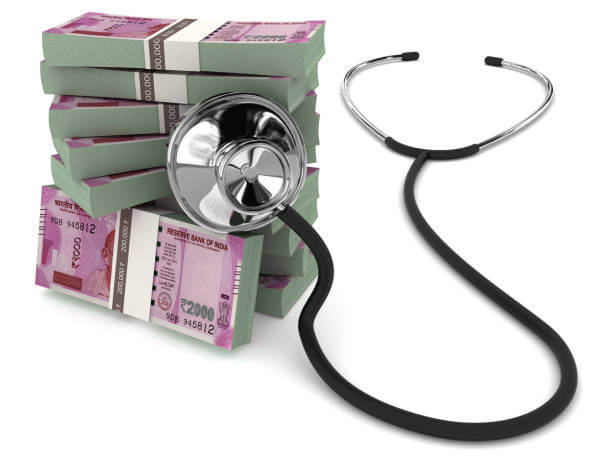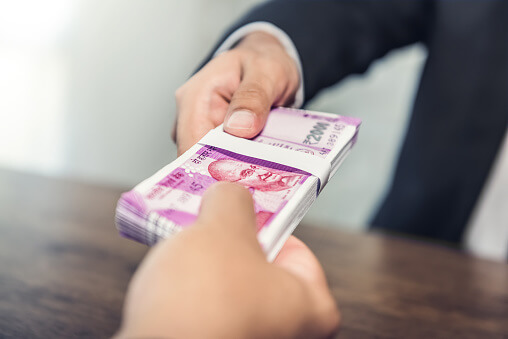

How To Pay Off Loans And Get Rid Of Debt In India?
By: Zahabiya, Diamond
Published On: February 28, 2022
In India, medical emergencies, children’s education and wedding expenses came out as the top reasons for taking personal loans. According to a report in the Financial Express, 77 % of Indians have relied on unsecured personal loans to make ends meet. It's no wonder that one of the heavily searched for queries on Google revolves around, “how to clear loans quickly?” and “how to get rid of debt?”

Understanding Financial Distress
If you’re anxious about money or bills, you’re not alone. Many people from all walks of life, from all over the world, are dealing with financial hardship and uncertainty at this tough time. Financial anxiety is one of the most prevalent stressors in modern life, whether it stems from a loss of job, growing debt, unanticipated spending, or a combination of reasons. Close to 82% Indians are suffering from stress on account of work, health and finance-related concerns. This leads to the need for loans to help pay bills.
Also Read:
Financial Help For Medical Treatment In India
What Is A Debt Trap?
A loan can sometimes work wonders for you but a misjudged debt can lead you into a debt trap. Simply put, a debt trap is a circumstance in which you are put into a position where you have to take too many loans to pay off your bills. Over time, you become trapped in a debt spiral that gets out of control, exceeding your repayment capabilities and leaving you in a financial trap.
Do you have a lot of debt and are worried about paying off debt without a loan? There are ways to get through these difficult economic times, no matter what your circumstances are. This blog discusses many forms of debts as well as various debt-reduction tactics and suggestions that you may use to eliminate your debt for good.
Different Types Of Loans And Debts
Life may throw us a lot of unexpected bills, from medical problems to vehicle accidents. The most frequent forms of debt are listed below.
Medical Loans
Education Loans
Business Loans
To learn if loans can really help you or not, read:
Will A Loan Really Help You? Here’s What Can
Medical Loans

About 55 million Indians were pushed into poverty in a single year due to patient-care costs, as per a study by the Public Health Foundation of India. The growing expense of medical treatment is making the life of the citizens difficult. People are afraid of falling sick for fear of falling into a debt trap. A single accident or illness can leave people looking for financial help for out of pocket medical expenses for years afterward. This can make getting out of medical debt incredibly tough. You can turn to charities that help with title loans or crowdfunding to pay off your medical bills.
Further reading:
Pay Off Your Medical Bills Through Crowdfunding: A Detailed Guide
Education Loans
The education loan has a variable index with a floating rate of interest that fluctuates over time. The interest rate may vary depending on the bank and the type of loan taken out. Obtaining an education loan for courses that do not guarantee a high rate of employment is a difficult undertaking. As a result, banks might deny a student a loan if he or she is applying to "ordinary degree-granting universities."
For more information on paying off a student loan, take a look at these related posts:
Business Loans

While undertaking a business loan, if the lender is not able to recover the loan amount, then the borrower’s business may have to file for bankruptcy. Secondly, long-term loans may usually only be granted if your organisation has a stable and consistent cash flow. As a result, if you're a small-to-medium-sized business with irregular cash flow, such a loan may be tough to obtain.
Further reading:
Got A Great Idea For Your Start-Up But No Funding? Crowdfunding Can Be Your Solution!
Steps To Pay Off Loans & Debts
Dealing with debt and loans to help pay bills can be difficult, but you don't have to go through it alone. Here are a few steps you can take to repay what you owe in a sustainable manner.
Note Down How Much You Owe
Make a list of all of your debts, including the creditor, the total amount owed, the monthly payment, the interest rate, and the due date. Your credit report can help you validate the debts on your list. With all of your bills in front of you, you'll be able to see the broad picture and keep on top of your entire debt situation.
Prioritize Your Debts
Not all debts are created equal when it comes to making the initial payment. Paying off your highest-interest debt first – generally credit cards or any other double-digit interest rate — will save you the most money. Alternatively, if you have a variety of debts, you may pay them off one by one, starting with the smallest and working your way up. If you have a few credit cards to pay off as well as a large, low-interest obligation, such as a college loan, this alternative may be preferable.
Create a Budget and Keep Track of Your Expenditures
When it comes to understanding how to get out of debt and save money, having a healthy budget is key. It's much more important to stay on that budget. These financial tips may be useful:
Fill in the gaps in your budget to account for unexpected costs and events that occur during the month.
To stay on track, use budgeting websites or apps.
Consider using the debt snowball strategy. Once you've paid off one loan, transfer the funds to the next one you intend to pay off.





 Information
Information Alert
Alert